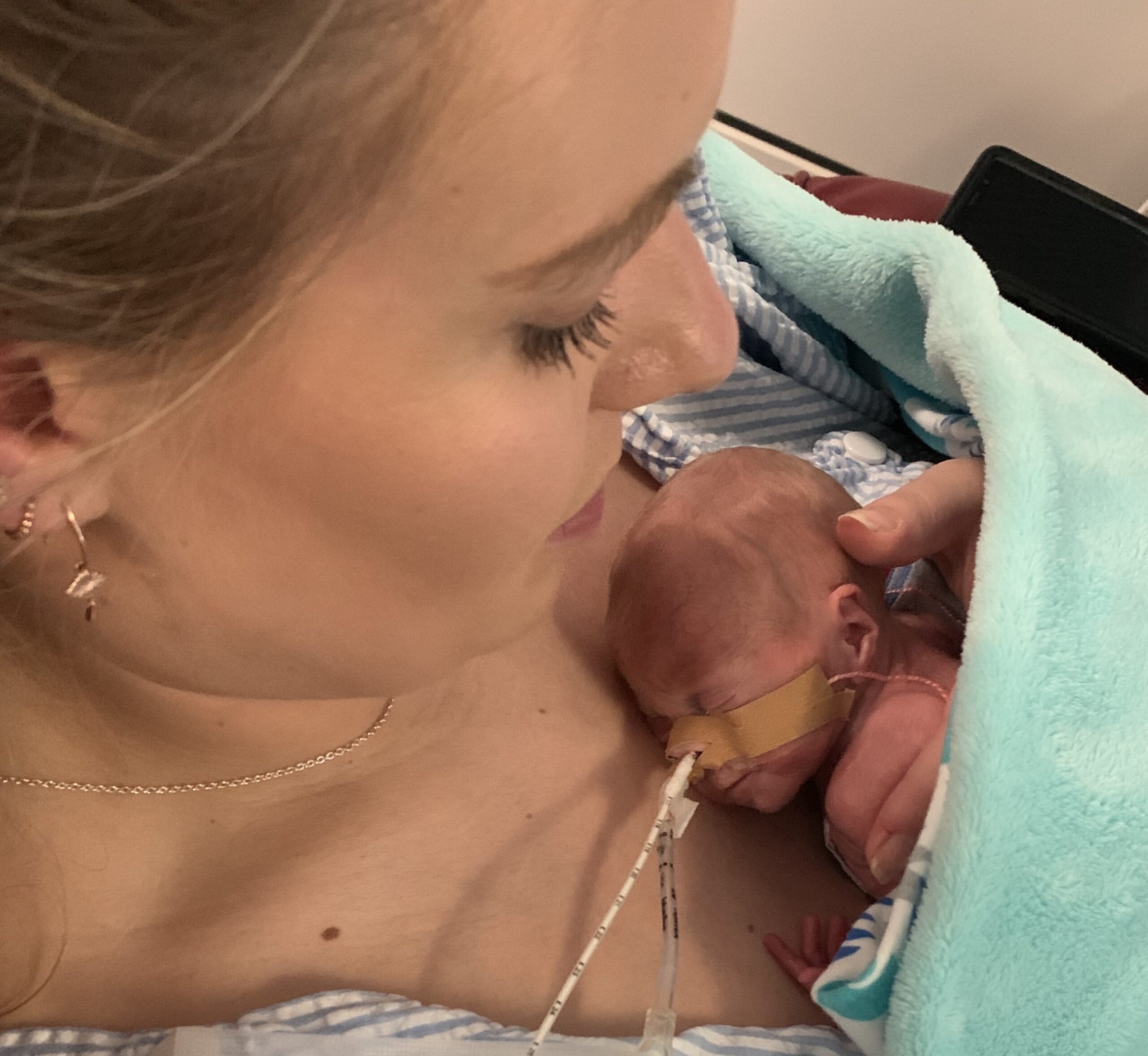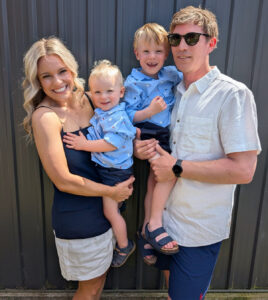Scan changes course of Mikaela’s pregnancy

As Mikaela and Sam Dunn hit the halfway mark in their first pregnancy, neither one of them could have imagined that in just a few short days their world would be turned upside down.
Classed as a “perfect candidate” to carry to full-term, Mikaela was enjoying a problem free pregnancy up until her 20-week scan.
The sonographer told Mikaela she had a very healthy baby and normal looking pregnancy. She was also informed that she had a short cervix.
“Those words ‘short cervix’ meant nothing to me. Was supposed to be short? I had no idea,” Mikaela recalls.
“I was told was told it can be very normal, was prescribed progesterone would be followed up in a weeks’ time.”
Thrown into a confusing world of statistics, medical jargon, and google results of high-risk pregnancies, Mikaela’s mind was rightly in overdrive. Was it even possible to have a baby so early? What is progesterone?
A few days later, one day shy of that all-important check in appointment to see how her cervix was doing, Mikaela remembers experiencing some uncomfortable pain.
“I was reassured that it most likely was just round ligament pain, but it was best to come in and get checked due to my short cervix diagnosis.
“As we were preparing to leave, I went to the bathroom and passed what I soon learned was my mucus plug.”
There in her driveway, at a mere 20+6 weeks, Mikaela’s waters broke.
“I knew this wasn’t good. Although I had learned you could have a baby in your second trimester, I knew 20 weeks just wasn’t feasible. I was sure I was losing my baby.
“At the hospital they rushed me through to the birthing suite and I was told that my baby would be arriving within 48 hours and to take a bedpan with me to the bathroom, as it could be the baby. I was crushed.”
A seemingly endless procession of examinations and scans continued past the 48-hour mark, and Mikaela’s baby was miraculously still hanging tight. A once clear outline on the ultrasound machine was now difficult to make out with the lack of amniotic fluid surrounding him.
“But his heart was still beating. That was the glimmer of hope I desperately hung onto,” she remembers.
“My new goal was now to make it to 22+6 weeks so I could have the steroid injections to rapidly mature his lungs and other organs.”
A few critical weeks later after experiencing contractions, baby Leonardo was born at 24 weeks weighing a mere 675 grams.
“He did not come out breathing, and it took a second doctor to even be able to get the breathing tube down his tiny windpipe to give him a fighting chance,” she said.
Leonardo was whisked away to the NICU immediately after and it would be several hours later before Mikaela and Sam would be able to meet their son for the first time.
In total, Leonardo would spend 104 days in the neonatal intensive care unit and special care nursery – on high oxygen support for almost the entirety of his stay.
“He came home just before his due date which was an incredibly special day for everyone.
Leonardo hasn’t had any ongoing health conditions, has met all corrected his milestones, and he continues to amaze us every single day.
“He is a literal little miracle. But we do truly know that we were one of the lucky ones.”
In 2023, Leonardo would become a big brother to Rafael, born early term at 37 weeks. The pregnancy was not without its own complications.
“With Rafael I did have to advocate for myself to be tested for leaking amniotic fluid, which was indeed positive (leaking), and the reason I was admitted and induced. This was after feeling empowered enough to advocate for myself after everything that happened with Leonardo.”
Shaped by her lived experience of extreme preterm birth, Mikaela has played a key part in the Every Week Counts National Preterm Birth Program as a consumer with Royal Hobart Hospital.
“I have already spoken to so many families who have also had a preterm baby. It’s so rewarding to be that little glimmer of hope for families or even just a sounding board as someone who has gone through it,” she said.
“I know that’s the very thing I was so desperately seeking when I was going through it, I really hope I can continue to be that person for any other families who need it.”



